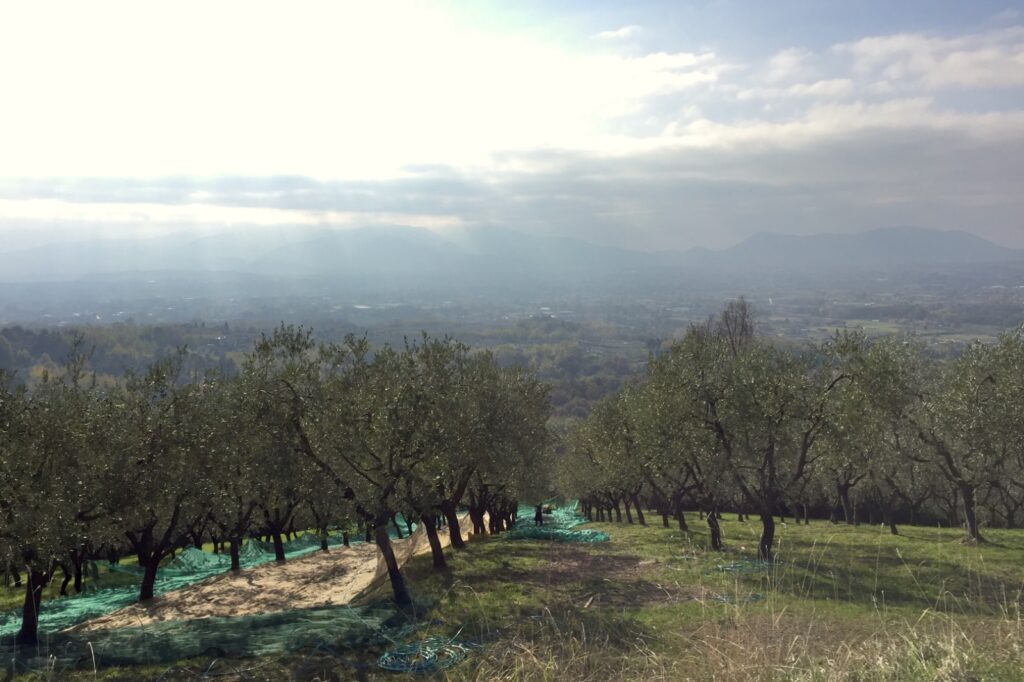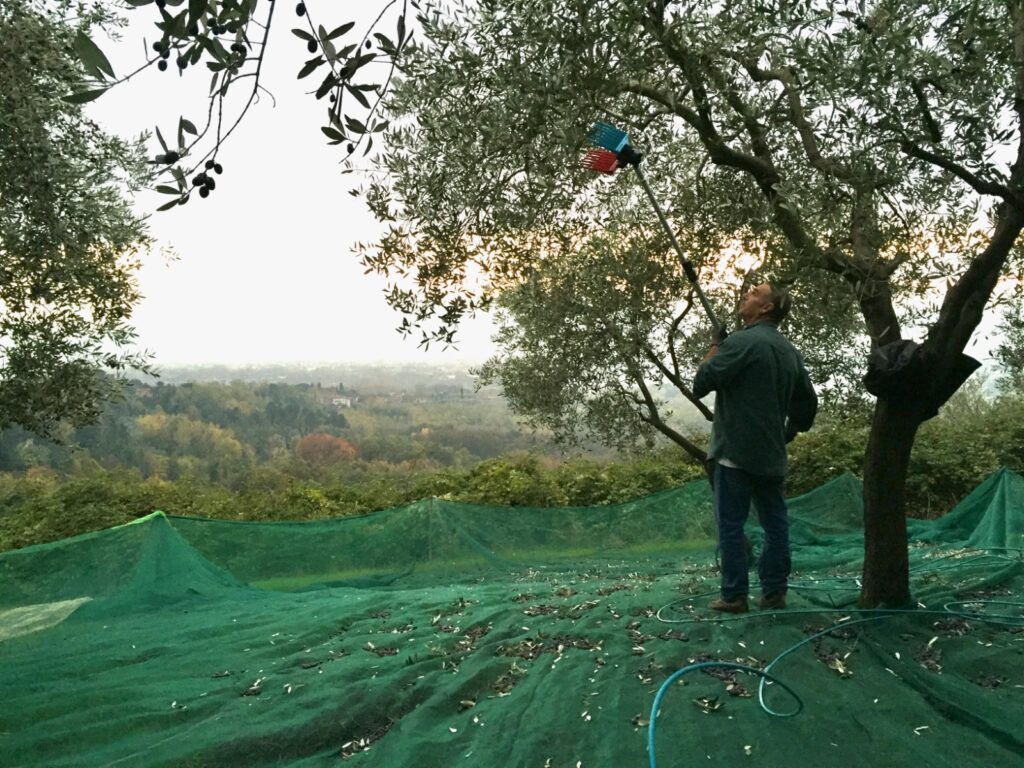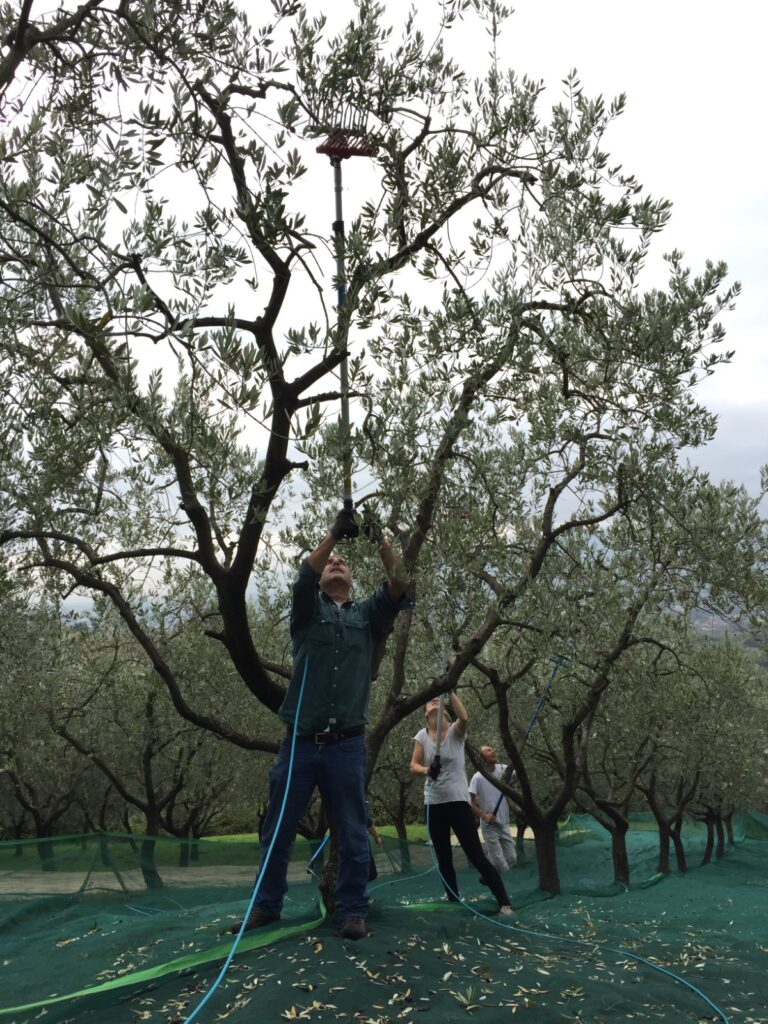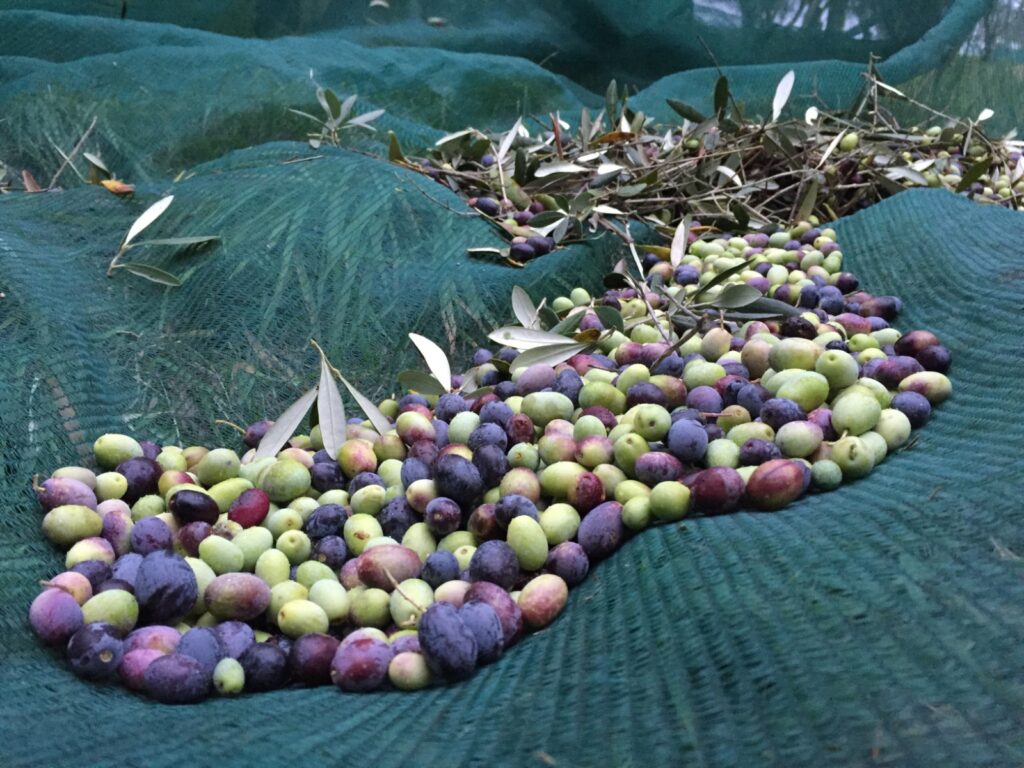In the United States, any television commercial advertising Italian food products goes something like this: cue the operatic music in the background… pan over scenes of rolling hills, vineyards, olive groves, cypress trees… zoom in on an ancient villa… show an old man musing over barrels of wine in the cellar… then his wife in the kitchen, lovingly stirring a pot of tomato sauce… enter the entire family of three generations who sit down at the dinner table, smiling as they spool pasta around their forks and raise their glasses to La dolce vita. Somewhere on this table is whatever they are trying to sell you. The wine, the pasta, the sauce, or the olive oil are conspicuously placed as part of this joyous, effortless, traditional family tableau. This is the American idea of Italy.
It is nearly impossible to eschew Italian culture and tradition, steeped in a thousand years of history, when visiting or living in this country. Even in the metropolitan cities, you can’t escape the Italianness of Italy. Yet despite the staggering variety of language, cuisine and customs from one town to the next, there seems to be a national understanding of certain indispensable foods that everyone knows as well as their own family, right down to where they come from and how they are made. Take olive oil and wine, for instance. They are ubiquitous, as just about every Italian seems to have a grandparent or cousin or friend or close acquaintance who produces these staples themselves. This would be a phenomenon to most Americans, who rarely have any idea of the origins of what lay on their dinner table, and who will almost never receive a bottle of something that hasn’t been purchased at a store.

The more recent generations of the American food cognoscenti attempt to be well intentioned consumers, but in reality the everyday items people use in their kitchens are a mystery beyond the grocery store shelf they were plucked from. Even with the popularity of the Mediterranean diet extolling the virtues of extra virgin olive oil and the Slow Food and California Cuisine mantras for eating locally and seasonally, most people have no idea of the immense labor that goes into putting a bottle of wine or oil on the table. And neither did I, until I went to a friend’s olive grove in the same rolling hills of Tuscany as seen on TV, to do it myself.
Forestarìa is a small agriturismo located just outside the city of Lucca, nestled into a nook of the undulating hillside, sculpted by rows of grape vines and olive trees. My friends Eleonora and her partner Marco purchased their modest farmhouse from Eleonora’s aunt, and along with her father they produce a small amount of olive oil for commercial sale. Each year they accept a number of eco-tourists to help with the olive harvest; usually young internationals using volunteer agricultural work as a means of cheap and immersive cultural travel, who like me get to fulfill their dream of a Tuscan farm fantasy in exchange for room and board. Enlisting a few more members of family and friends to round out the team, this crew assembles annually to execute the harvest. I’ve had a deep love affair with the so-called liquid gold for as long as I can remember, so off I went with visions in my mind of languid days set in a lush Tuscan landscape, gently coaxing olives from their branches; the embodiment of La dolce vita.

The morning following my arrival we woke up early to pour coffee down our throats before heading to the grove. The nets that catch the olives had been laid the day before; strategically placed alleyways of green latticework that descended the steep slope neatly lined with trees. Wrapped in the smokey perfumed air of the early hours with a purple fog still snuggled into the hillside, this rustic life of an Italian farmer was entirely enchanting. That is, until a small tractor with a bulbous blue compressor at the top of the hill was fired up, shooting high pressured air through long winding hoses attached to mechanical rakes that were hoisted into the trees. With a slight pull on the trigger handle, a deafening flurry of pseudo-gunfire mercilessly discharged from the interlocking fingered rake heads. Birds launch into the air, the irritated fog decided to move elsewhere, and the gentle morning light pierced our upturned eyes as we began to comb the fruit from their branches.
About twenty minutes later I was sweating, aching and gasping for breath. My limbs felt like concrete. Vomiting was a definite possibility. I’m sure my face had turned green, or maybe purple. Thoughts of devising a quick escape on foot flashed through my mind, but I could barely breathe let alone operate my useless legs. I was miserable and pathetic, and to make matters worse I was being laughed at by a sixty year old man in a tree. This was not how I had pictured the olive harvest.

The old man is Eleonora’s father, affectionately called Gambina. He was perched happily in the upper branches, wielding a hefty rake in one callused hand, while simultaneously singing Italian folk songs and rolling a cigarette with the other. He is twice my age, and has thrice my strength. This is the work that Gambina has grown up doing, and he executes it without a second thought to the back breaking endurance required by the small but demanding grove. The sight of me, a thirty-something year old American clinging onto the bottom of a burly tree trunk like an overboard passenger on a life raft was no doubt the source of his amusement. Should anyone miss a single shy olive hiding in plain sight, his hawk eye would redirect us to the dangling drupe until every last one had been plucked from its perch.
Gambina has good reason to be scrupulous. Each olive contains a few drops of what is to be that season’s earnings, and with only a few hectares of tress, every drop counts. No matter how long it took us, he made sure each and every olive was accounted for. Three punishing hours later, Gambina had completed two rows of trees entirely on his own. Eleonora, her brother Leo, and their long time neighbor Daniele had tended to another two rows, and the collective of eight guests who filled the rooms at Forestarìa had admirably finished one (despite half of them spending most of their time pretending to gather stray olives off the ground just to avoid lifting that damn rake again). After completing one single tree myself and feeling as if my life had flashed before my eyes, I decided I would be of better use rolling Gambina’s endless supply of cigarettes so he would ease up on cursing in dialect at my uselessness. Eventually we took an hour break for lunch, only to turn around and perform this Herculean task all over again.

That evening when we returned to the house I collapsed onto my small bed and fell asleep almost immediately, missing dinner entirely. It took nearly the whole week before managing to pass one day in the grove without nausea, apprehension, or endless self-doubt about why I had decided to do this in the first place. Despite the punishing manual labor, I eventually managed to enjoy the beautiful surroundings and took pride in being a part of this centuries-old tradition. Above all, I developed a humbling and profound respect for all agricultural work and the everyday food items we consume without thought or regard for the massive efforts required to make them. The dedication, craft, and immense hardship of producing this oil has forever changed the way I view food. It is no longer merely a delicious staple of cooking and health. It is also a foundational cornerstone of culture and a livelihood that is unimaginable in its difficulty as it continues to grace the tables of families across the globe.
In truth, I could not be more proud to have partaken in the olive harvest and have returned to Forestarìa many times, though usually more as a guest than a laborer. During harvest season I still manage a couple of days taking the rake in hand, finding it as challenging as ever. Gambina is still singing and smoking and laughing at me from the high branches. Eleonora and Marco have a new baby, Alfredo, who will hopefully carry the family tradition into the future, and the recruits of eager eco-travelers still fill the agriturismo each fall. We’ve had many dinners around the table, like the ones seen on tv, in a small stone house set into the rolling hills, with three generations drizzling oil over their pasta and raising glasses to the harvest. But for all its romance, no commercial can capture the truth of this Italian life. Its efforts of labor nearly insurmountable, its value immeasurable, and its oil one of the most miraculous thing in the world.

Giuliana Mackler is a former hospitality professional from New York City and 2019 masters student of gastronomy at UNISG. She currently lives in Lucca.



What a lovely, vivid and humorous tribute to the tradition of the olive harvest. Giuliana’s writing has created a picture far more in depth and interest than just the usual picturesque beauty of towns we American’s sometimes dream of visiting in Italy. It has spoken to the heart of the people’s culture & customs that we take for granted but are now delighted to know about.